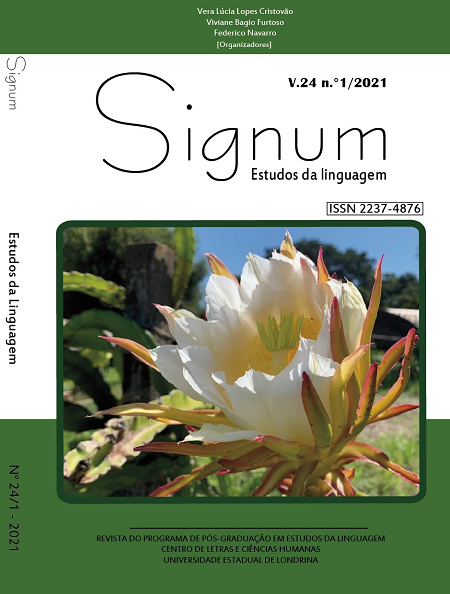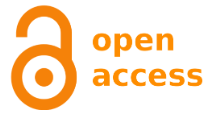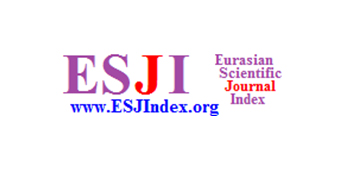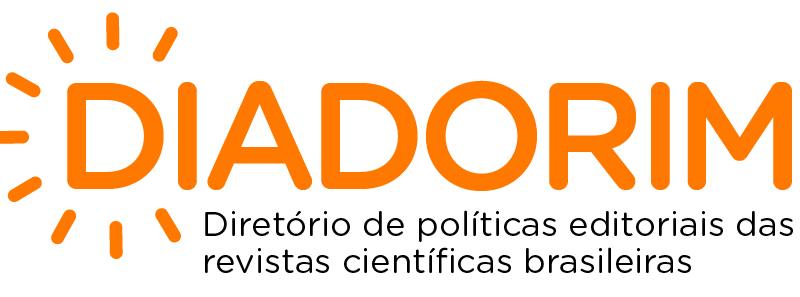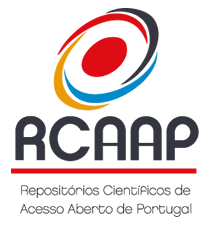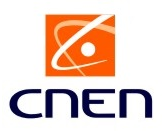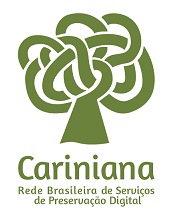Peer Feedback in an Online Dissertation Writing Workshop
DOI:
https://doi.org/10.5433/2237-4876.2021v24n1p80Palavras-chave:
virtual learning, dissertation writing, peer feedback.-Resumo
The article examines in-text comments and overall peer feedback to dissertation chapter drafts as well as students' opinion about giving and receiving feedback, both before and after taking part in the peer revision activities proposed in an online dissertation writing workshop. As regards the in-text comments, with statistical significance, most of them consisted of basic feedback, referred to the textual model (mainly linguistic aspects) and had a directive pragmatic function. In the overall peer feedback, the textual model also prevailed but comments also included issues linked to the communicative situation and the research and a higher level of substantiated comments was noticed. This can be related to what students affirmed about the feedback received before and after the workshop: the perspectives of their peers allowed them objectify the text or even delve into a critical evaluation of their own dissertation work. Additionally, peers' comments allowed them redoing the writing actions that took place in the making of their first draft (e.g. drafting the paragraphs, structuring the discourse, thinking about whole sections) but this time, actions were informed by different perspective, which led to an improvement of the text at different levels.
Downloads
Referências
AVENDAÑO CASTRO, W. R.; PAZ MONTES, L. S.; RUEDA VERA, G. Dificultades en la escritura académica y funciones cognitivas: revisión de estudios. Sophia1 vol. 3, n. 1, p. 132-143, 2017. doi: 10.18634/sophiaj.13v.1i.457
BASTURKMEN, H.; EAST, M.; BITCHENER, J. Supervisors' on-script feedback comments on drafts of dissertations: socialising students into the academic discourse community. Teaching in Higher Education, vol. 19, n. 4, p.432-445, 2014. doi: 10.1080/13562517.2012.752728
CAFFARELLA, R.; BARNETT, B. Teaching Doctoral Students to Become Scholarly Writers: The importance of giving and receiving critiques. Studies in Higher Education, vol. 25, n. 1, p. 39-52, 2000. doi: 10.1080/030750700116000
CAN, G.; WALKER, A. A model for doctoral students' perceptions and attitudes toward written feedback for academic writing. Research in Higher Education, vol. 52, n. 5, p. 508-536, 2011. doi: 10.1007/s11162-010-9204-1
CARLINO, P. ¿Por qué no se completan las tesis en los posgrados? Obstáculos percibidos por maestrandos en curso y magister exitosos. Educere, Revista Venezolana de Educación, vol. 9, n. 30, p. 415-420, 2005. Available at http://www.saber.ula.ve/bitstream/123456789/19980/2/articulo19.pdf
CARLINO, P. Helping doctoral students of education to face writing and emotional challenges in identity transition. In M. Castelló; C. Donahue (Eds.), University writing: Selves and Texts in Academic Societies. London: Emerald Group Publishing, 2012, p. 217-234.
CHOIS LENIS, P.; GUERRERO GIMÉNEZ, H. I.; BRAMBILA LIMÓN, R. Una mirada analítica a la enseñanza de la escritura en posgrado: Revisión de prácticas documentadas en Latinoamérica. Íkala. Revista de Lenguaje y Cultura, vol. 25, n. 2, p. 535-556, 2020. https://doi.org/510.17533/udea.ikala.v17525n17502a17509.
CUBO DE SEVERINO, L.; BOSIO, I. V. La tesis como clase textual y su proceso de escritura. In L. Cubo, H. Puiatti and N. Lacon (Eds.), Escribir una tesis. Manual de estrategias de producción. Córdoba, Argentina: Comunic-arte, 2011, p. 13-36.
D'ANDREA, L. Obstacles to Completion of the Doctoral Degree in Colleges of Education. Educational Research Quarterly, vol. 25, n. 3, p. 42-58, 2002.
DELAMONT, S. Four great gates: dilemmas, directions and distractions in educational research. Research Papers in Education, vol. 20, n. 1, p. 85-100, 2005. doi: 10.1080/0267152052000341345
DELYSER, D. Teaching graduate students to write: a seminar for thesis and dissertation writers. Journal of Geography in Higher Education, vol. 27, n. 2, p. 169-181, 2003. Available at http://www.ga.lsu.edu/delyser/writingseminar.pdf
DRESSLER, R.; CHU, M-W, CROSSMAN, K.; HILMAN, B. Quantity and quality of uptake: Examining surface and meaning-level feedback provided by peers and an instructor in a graduate research course. Assessing Writing, vol. 39, p. 14-24, 2019. https://doi.org/10.1016/j.asw.2018.11.001
DUDLEY-EVANS, T.; ST. JOHN, M. J. Developing English for specific purposes: A multi-disciplinary approach. Cambridge: Cambridge University Press, 1998.
EAST, M., BITCHENER, J.; BASTURKMEN, H. What constitutes effective feedback to postgraduate research students? The students' perspective. Journal of University Teaching & LearningPractice, vol. 9, n. 2, 1-16, 2012. Available at: http://ro.uow.edu.au/jutlp/vol9/iss2/7
ESCALANTE GÓMEZ, E. Un análisis descriptivo y fenomenológico de problemas en la elaboración de tesis de maestría. Reencuentro, vol. 57, p. 38-47, 2010. Available at: https://www.redalyc.org/articulo.oa?id=34012514006
FERGUSON, T. The 'Write' Skills and More: A Thesis Writing Group for Doctoral Students. Journal of Geography in Higher Education, vol. 33, n. 2, p. 285-297, 2009. doi: 10.1080/03098260902734968
GARDNER, S. I heard it through the grapevine: doctoral student socialization in chemistry and history. Higher Education, vol. 54, p. 723-740, 2007. https://doi.org/10.1007/s10734-006-9020-x
HERNÁNDEZ SAMPIERI, R.; FERNÁNDEZ COLLADO, C.; BAPTISTA LUCIO, P. Metodología de la investigación (6ª ed.). México: McGraw Hill, 2014.
KOZAR, O.; LUM, J. Factors to consider when designing writing groups for off-campus doctoral candidates. In H. M.Carter, M. Gosper; J. Hedberg (Eds.), Electric Dreams, Proceedings ascilite 2013. Macquarie University, Sydney, 2013, p. 498-502.
KUMAR, V.; STRACKE, E . An analysis of written feedback on a PhD thesis. Teaching in Higher Education, vol. 12, n. 4, p. 461-470, 2007. doi: 10.1080/13562510701415433
KUMAR, V.; AITCHISON, C. Peer facilitated writing groups: a programmatic approach to doctoral student writing. Teaching in Higher Education, vol. 23, n. 3, p. 360-373, 2017. doi: 10.1080/13562517.2017.1391200
LASSIG, C.; LINCOLN, M.; DILLON, L., DIEZMANN, C., FOX, J.; NEOFA, Z. Writing together, learning together: the value and effectiveness of a research writing group for doctoral students. In P. Jeffery (Ed.), Proceedings of the Australian Association for Research in Education Annual Conference 2010: Making a Difference. Australian Association for Research in Education, Australia, 2010, p. 1-14.
LEE, A.; MURRAY, R. Supervising writing: helping postgraduate students develop as researchers. Innovations in Education and Teaching International, vol. 52, n. 5, p. 558-570, 2013. doi:10.1080/14703297.2013.866329
LI, S.; SEALE, C. Managing criticism in Ph.D. supervision: a qualitative case study. Studies in Higher Education,vol. 32, n. 4, p. 511-526, 2007. doi: 10.1080/03075070701476225
LUNDELL, D.; BEACH, R. Dissertation Writers' Negotiations with Competing Activity Systems. In C. Bazerman, & D. Russell (Eds.), Writing selves, writing societies. Fort Collins, CO: The WAC Clearinghouse, 2002, p. 483-514.
LOVITTS, B. The Transition to Independent Research: Who Makes It, Who Doesn't, and Why. The Journal of Higher Education, vol. 79, n. 3, p. 296-325, 2008. doi: 10.1080/00221546.2008.11772100
MAHER, D.; SEATON, L.; MCMULLEN, C.; FITZGERALD, T.; OTSUJI, E.; LEE, A. 'Becoming and being writers': the experiences of doctoral students in writing groups. Studies in Continuing Education, vol. 30, n. 3, p. 263-275, 2008. https://doi.org/10.1080/01580370802439870
MARTÍN TORRES, G. G. La escritura de tesis de posgrado en el área de investigación educativa: El acompañamiento, una pieza clave. CPU-E Revista de Investigación Educativa, vol. 15, p. 69-86, 2012. Available at: https://www.redalyc.org/pdf/2831/283123579004.pdf
MCLAUGHLIN, C. J.; SILLENCE, E. Buffering against academic loneliness: The benefits of social media-based peer support during postgraduate study. Active Learning in Higher Education, p. 1-14, 2018. https://doi.org/10.1177/1469787418799185
PENG, H. Supervisors' views of the generic difficulties in thesis/dissertation writing of Chinese EFL research students. The Asian Journal of Applied Linguistics, vol. 5(1), 93-103, 2018. Available at: https://caes.hku.hk/ajal/index.php/ajal/article/view/524
ROULSTON, K.; TEITELBAUM, D.; CHANG, B.; BUTCHART, R. Strategies for developing a writing community for doctoral students. International Journal for Researcher Development, vol. 7, n. 2, p. 198-210, 2016. https://doi.org/10.1108/IJRD-02-2016-0003
SÁNCHEZ JIMÉNEZ, D. La elaboración de la tesis doctoral en las universidades de habla hispana: dificultades y planteamientos de mejora. Revista Iberoamericana de Educación, vol. 60, n. 3, 2012. Available at: https://rieoei.org/RIE/issue/view/111
SIMPSON, S.; RUECKER, T.; CARREJO, D.; FLORES, B.; GONZALEZ, H. Leveraging development grants to create graduate writing support at three Hispanic-Serving Institutions. In S. SIMPSON, N.; A. CAPLAN; M. COX; T. PHILLIPS (Eds.), Supporting graduate student writers: Research, Curriculum, and Program Design. Ann Arbor: University of Michigan Press, 2016, p. 171-191.
SWALES, J. Research genres: Explorations and applications. Cambridge: Cambridge University Press, 2004.
YU, S. Learning from giving peer feedback on postgraduate theses: Voices from Master's students in the Macau EFL context. Assessing Writing, vol. 40, p. 42-52, 2019. https://doi.org/10.1016/j.asw.2019.03.004
Downloads
Publicado
Como Citar
Edição
Seção
Licença
Copyright (c) 2021 Signum: Estudos da Linguagem

Este trabalho está licenciado sob uma licença Creative Commons Attribution-NonCommercial-NoDerivatives 4.0 International License.
Signum: Estudos da linguagem, publica seus artigos licenciados sob a Licença Atribuição-NãoComercial-CompartilhaIgual 4.0 Internacional. Esta licença permite que terceiros façam download e compartilhem os trabalhos em qualquer meio ou formato, desde que atribuam o devido crédito de autoria, mas sem que possam alterá-los de nenhuma forma ou utilizá-los para fins comerciais. Se você remixar, transformar ou desenvolver o material, não poderá distribuir o material modificado.
